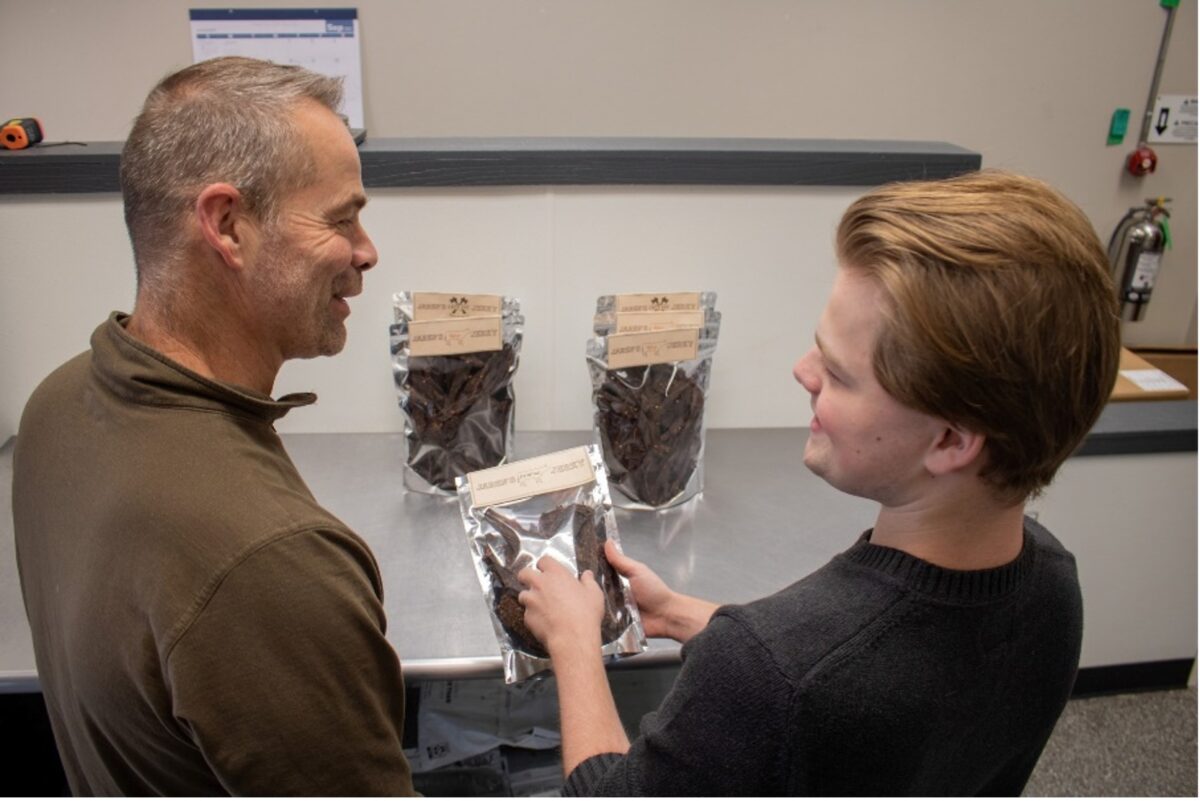Nurturing. Care. Protection. Just as an egg needs all these things to hatch, so does a new business in order to launch, grow and succeed in a world that can quickly chew up and spit out entrepreneurs and their ideas.
“As a young founder, it can be cutthroat, even predatory,” says William Colton, inventor, patent owner and CEO of Paldara Pharmaceuticals. “When you’re dealing with all the emotions and the financial risk, having someone on your side, on your team, that’s there for you and your business – it means so much.”
Oklahoma Small Business Incubators are there to do just that by helping startups accelerate their development, offering targeted resources, services, professional advice, mentorships and even a roof over their heads, all in a shared facility that fosters growth.
“It’s an entrepreneurial center, or a hub, where startups and small businesses can be surrounded by peers and have access to programming,” says Cara Evans, director of AXIS, the incubator at Francis Tuttle Technology Center in Edmond. “And oftentimes, there’s some kind of a reduction of overhead or incentive tied to it.”
In 1988, the Oklahoma Legislature passed the Oklahoma Small Business Incubators Incentives Act. The act exempts the tenants of a certified incubator facility from state tax liability on income earned as a result of occupancy for up to five years. In 2001, the legislature amended the act to extend the tenant’s tax exemption from five to 10 years.
Since then, the state has benefited from increased revenues and increases in the number of startups and expanding small businesses. Right now, 376 full-time, 112 part-time and 43 interns are employed by incubator tenants.
Currently, there are 26 certified incubators operating across the state and more than 1,000 small businesses have located in them since the program’s inception in 1988. From Oklahoma City, Stillwater and Tulsa to Enid, Guthrie, Pawhuska and beyond, 152 small businesses are currently leasing space in the state’s incubators.
Colton, who started his advanced preclinical biotech company in 2019 while attending Oklahoma State University, is developing a platform hydrogel technology that can treat and prevent up to 99% of drug resistant infections, he says. He’s currently operating out of the Meridian Technology Center, an incubator in Stillwater.

“That’s where I started my first lab,” Colton says. “I bought a lot of my equipment from another biotech company going out of business. So I was able to be very thrifty with some very expensive scientific equipment. We opened up our lab right before COVID and I finished our first minimum viable product by the end of that year.”
Colton is currently working with the Mayo Clinic, as well as OSU’s College of Veterinary Medicine, as the company navigates the FDA regulatory pathway.
Lindsey Miller, founder and owner of My Marketing Assistant, didn’t need the office space that incubators can offer, but she was looking for connection.
“I was fully remote,” Miller says. “But I wanted the business support, the social support. I wanted to make connections.”
Her company, based in Oklahoma City, launched in 2023 with the support of the AXIS incubator. My Marketing Assistant now has eight employees and helps clients all over the U.S. with their marketing and promotional strategies.
“I’ve gotten clients, speaking engagements, interview opportunities and countless other things because of that inclusion,” she says.
Evans says incubators are looking to work with entrepreneurs like Miller who are seeking opportunities to stretch themselves and their business.
“The ideal client is someone who is coachable and who realizes that this is an economic development motive and that we’re on their team,” Evans says. “If we are making suggestions or trying to introduce them to new resources, it’s because we want them to be wildly successful. Sometimes people are so in love with their idea or their technology that they don’t have the capacity to grow it. We want to make sure that as we bring someone in that they’re willing to adapt and go with the flow, because hopefully it’s what serves their business to be the most successful.”
Small business incubators come in all shapes and sizes.
“Each incubator is going to have its own flavor,” says Evans, “because there are some that have access to commercial kitchens. My incubator is on a STEM campus, so a lot of the companies that wind up at AXIS are related to software as a service or they have something that’s going to be venture backable.”
At their core, the small business incubators are in it for Oklahoma.
“A big part of the philosophy is to grow our own,” Evans says. “We already know that they love Oklahoma. So if we’re able to fill the gaps in our local economies with these companies – because when they see a need, they fill it – we want to provide those supports on the front end, so they hopefully have longevity, stay in Oklahoma and create more jobs. It’s really kind of a long play, just like any other investment into startups and small businesses. You’re planting seeds and then hoping some hit.”
Featured photo credit: Sailor and The Dock, near OKC’s Film Row, achieved certification as an incubator program in March 2024. This milestone marks it as the first certified creative and retail business incubator in Oklahoma. Photos courtesy the Oklahoma Department of Commerce






















